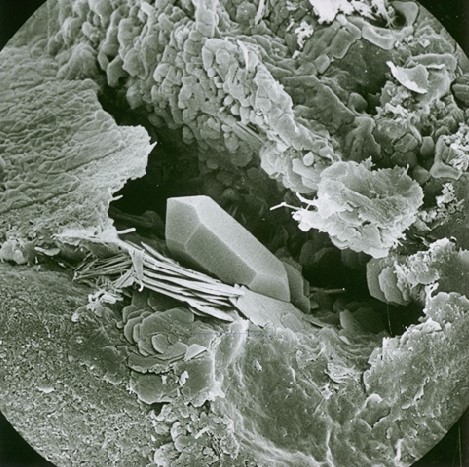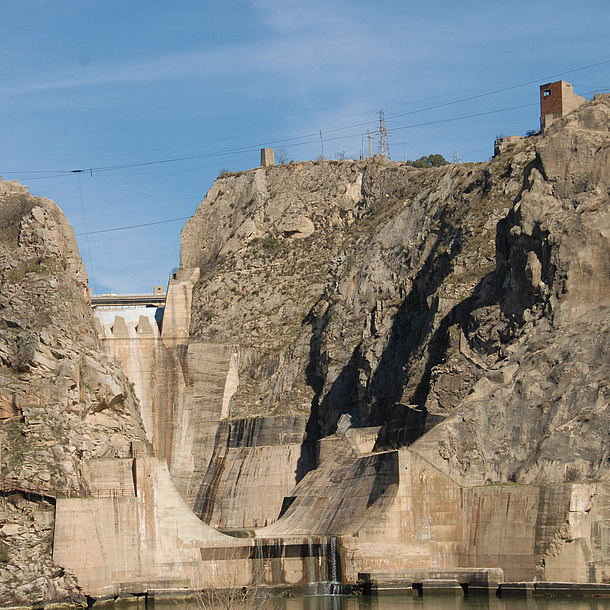Content
Dissertation
- You undertake independent research in a specific application area of geoscience.
- You look for solutions to natural science related problems and technical problems in geoscience.
- You publish, present and defend your research results.
Courses (curricular workload)
- You gain fundamental knowledge and specialise in the subject of your dissertation.
- You gain experience of geoscientific methods.
- You regularly talk to teachers and other students about your progress and the results of your dissertation.
- Duration of study: 3 years
- Academic degree: Doktorin/Doktor der technischen Wissenschaften (Dr. techn.; translation: Doctor of Technical Sciences) or Doktorin/Doktor der Naturwissenschaften (Dr.rer.nat.; translation: Doctor of Natural Sciences), equivalent to the Doctor of Philosophy (PhD)
- Languages of instruction: English and German
- Admission requirements: see requirements for doctoral programmes
- Curricula:
- Statutes:
Admissions to doctoral studies are possible in the current semester at any time up to a maximum of ten days before the start of the general admission period of the following semester. Admission deadlines
Further informationen on registration and admission
International degree programme applicants: admission and application deadlines
Class of Earth Sciences
- Head
Dorothee HIPPLER
Assoc.Prof. Dipl.-Geol. Dr.phil.-nat.
Phone: +43 316 873 6878
dorothee.hippler@tugraz.at - Dean of Studies
Christine LATAL
Mag.rer.nat. Dr.rer.nat.
Phone: +43 316 873 6367
christine.latal@tugraz.at - Student representative
Stefanie EICHINGER
BSc MSc
stefanie.eichinger@tugraz.at
Class of Geodesy
- Head
Torsten MAYER-GÜRR
Univ.-Prof. Dr.-Ing.
Phone: +43 316 873 6359
mayer-guerr@tugraz.at - Dean of Studies
Norbert KÜHTREIBER
Ao.Univ.-Prof. Dipl.-Ing. Dr.techn.
Phone: +43 316 873 6352
norbert.kuehtreiber@tugraz.at - Student representative
Caroline SCHÖNBERGER
Dipl.-Ing. BSc
c.schoenberger@tugraz.at

Focus Areas
Research core areas
- Tectonics and structural geology
- Geodynamics and geochemistry
- Mineralogy and petrology
- Geobiology and palaeoecology
- Actuopalaeoecology, palaeobiogeography and stratigraphy
- Groundwater reservoirs and fault zones as drinking water supplies
- Experiments to verify mechanisms of the formation of carbonate minerals
- Carbonate formation in natural and industrial environments
- Silicate, phosphate and oxide mineral formation and weathering
- Environmental and applied mineralogy
- Mass movement and avoidance strategies
- Quantification of scouring processes in tectonically damaged rock masses
- Statistic methods for documenting and predicting mountain behaviour during tunnel construction
Research core areas
- Geospatial technologies (remote sensoring, geoinformation, photogrammetry)
- Sensor integration
- Monitoring systems
- Navigation
- Satellite geodesy
- Engineering geodesy
- Space sciences
- Physical geodesy and geophysics
- Mathematical and numerical geodesy
Teaching staff and Institutes
Information about the publications and projects from each institute can be obtained by viewing their respective business cards.
Class of Earth Sciences
Class of Geodesy
- Institute of Geodesy
- Working group for navigation
- Working group for remote sensing and photogrammetry
- Working group for geoinformation
- Working group for theoretical geodesy and satellite geodesy
- Institute of Engineering Geodesy and Measurement Systems


